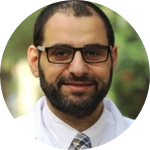About This Project
Gadolinium-based contrast agents have been used to enhance magnetic resonance (MR) examinations. A potential new safety concern has been suggested in multiple recent studies in adults. Those studies demonstrated increased brain intraparenchymal signal intensity on unenhanced T1-weighted MR images with repeated exposure to multiple linear and macrocyclic. To our knowledge, no published reports have demonstrated clinical harm from intracranial gadolinium deposition and their effects on imaging.
Ask the Scientists
Join The DiscussionWhat is the context of this research?
There has been an increased awareness in gadolinium retention in the brain which can potentially cause physiological disturbances.
FDA announcement:
July 27 2015 U.S. Food & Drug Administration. Safety Alert for Human medication. Drug Safety Communication – Gadolinium-based Contrast Agents.http://www.fda.gov/Safety/MedWatch/SafetyInformation/SafetyAlertsforHumanMedicalProducts/ucm456012.htm OPEN ACCESS Previous Reports Attributed to Pathologies, Now Considered Signs of Gadolinium Accumulation
| Extent of Signal Hyperintensity on Unenhanced T1-weighted Brain MR Images after More than 35 Administrations of Linear Gadolinium-based Contrast Agents NR Yang Zhang, Yan Cao, George L. Shih, Elizabeth M. Hecht, Martin R. Prince |
What is the significance of this project?
To determine if the linear contrast agents are really infact depositing on the brain and are we giving too much contrast as well as are we overdosing.
What are the goals of the project?
1. To determine the relaxation of protons before and after gadolinium relaxation.
2. look at Dose levels vs body weight and intensity that is depositied
Budget
The budget will help advance this research at a faster rate since the research is rapidly changing at a rate faster than we can keep up by having the imaging software and employing 2 staff members to complete it.
Meet the Team
Charbel saade
Proving that the world is made up of misconceptions and that people follow like sheep !
Prof.Charbel Saade graduated from the University of Sydney in radiography, Masters in CT and MRI, and a PhD in contrast media delivery. Charbel is currently working at the American University of Beirut. He is a frequent lecturer in international congresses like RSNA, ECR and Arab Health. Charbel has co-authored more than 50 original papers with more than 70 abstracts presented. Charbel has a strong clinical background in the field of CT and MRI. Charbel is also Adjunct Professor of medical imaging at king Khaled University KSA as well as editor in chief in the international journal of medical imaging. Charbel is the owner and convenor of MDCT.com.au and has been teaching radiographers for more than 10 years with the latest tips and tricks to reduce contrast media administration and radiation dose whilst maintaining image quality. Charbel has a particular focus on education by changing radiology "one image at a time" through the eyes of a radiographer.
Lab Notes
Nothing posted yet.
Project Backers
- 0Backers
- 0%Funded
- $0Total Donations
- $0Average Donation
